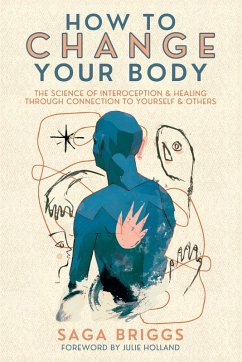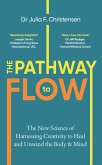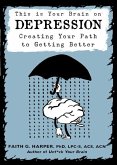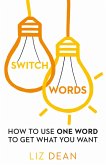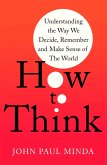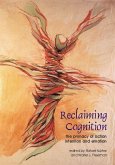How to Change Your Body provides an enlightening discourse on the missing piece of the mind-body relationship - our need for social connection. What if symptoms from some of our most common afflictions-everything from depression and anxiety to addiction and PTSD-could be traced back to a disconnection from our bodies?How to Change Your Body explores this provocative question through a rigorous yet playful collection of interviews with scientists, somatic workers, and artists from around the world to uncover the social-emotional aspects of so-called mental illnesses. Saga Briggs is our compassionate guide, pairing peer-reviewed research with moving personal vignettes about her journey away from alcohol dependence to draw a profound link between bodily awareness, social connection, and mental well-being. Interoception, regarded by some as our eighth sense, is fundamental to human health and, Briggs argues, lies at the heart of many techniques shown to improve our relationships to ourselves and others, including psychedelic-assisted therapy, synchronous movement, and energy work. Whether you are facing a mental health diagnosis or simply yearn for a deeper connection to yourself and your community, How to Change Your Body offers a potent antidote to alienation. Through remembering our bodies in all of their intricacy, we can increase our capacity for presence, reconnect with others, and begin to heal.
Hinweis: Dieser Artikel kann nur an eine deutsche Lieferadresse ausgeliefert werden.
Hinweis: Dieser Artikel kann nur an eine deutsche Lieferadresse ausgeliefert werden.

